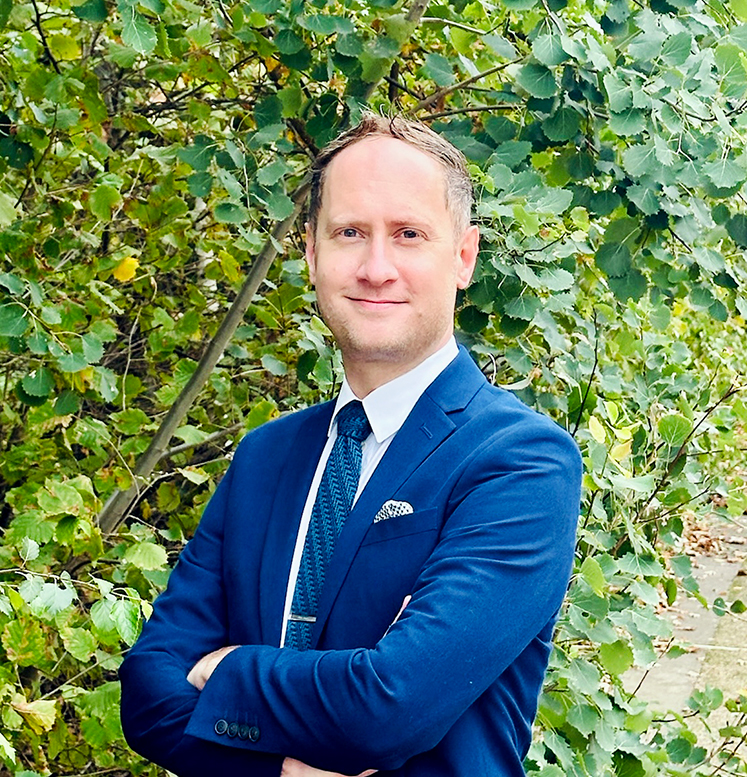
Tell us about your journey since graduating from LSE
Since graduating from LSE, my career has focussed on social housing and community development in the UK, and advancing educational rights for refugees in the Middle East. I’ve worked across UK local government and the housing sector to improve the quality of social housing in this country, engaging with residents to create thriving, resilient neighbourhoods.
Much of my work has been about connecting public policy to people’s lived experiences, translating strategic ambitions of public sector bodies into tangible improvements in the quality of homes and neighbourhoods as places to live. I’ve had the privilege of leading diverse teams and working with community partners across London to tackle some of the most pressing challenges around housing inequality.
If you could tell your younger student self one piece of wisdom, what would it be and why?
Read more, listen more, talk less. The most rewarding and memorable opportunities for learning often come from unexpected directions – even for those of us fairly firm in our convictions!
How has studying in the Department of Government helped you since graduation?
Studying Government at LSE gave me a foundation for understanding how and why policy decisions are made - and more importantly how they impact real communities. The department’s emphasis on critical thinking, evidence-based analysis, and challenging assumptions shaped the way I have approached decision-making throughout my career in various professional settings. It taught me to think about the relationship between systems, power, and people and look beyond decisions on a surface level.
The intellectual environment at LSE encouraged me not only to question assumptions but also to develop pragmatic solutions grounded in justice. These academic foundations shaped my approach to work - valuing inclusivity, accountability, and a relentless pursuit for public good.
What’s the one piece of career guidance that has most impacted you?
There’s an adage about ensuring what you do for work is aligned with your values, not just to thrive in a career, but to enjoy what you do and the impact you can make. This is something I often say when coaching others – but I’m also reminding myself when I do.
What’s been the highlight of your career so far?
Working in social housing, being able to provide high-quality, affordable homes for residents in the midst of a housing crisis that has been decades in the making has always been the most rewarding part of my career. Currently I work as the Neighbourhood Director of the Lancaster West Estate in North Kensington - which is the housing estate where the Grenfell Tower tragedy occurred on 14th June 2017.
72 people tragically lost their lives in a devastating fire that was entirely avoidable. Hundreds of residents were survivors and bereaved, and thousands more in the wider community traumatised. Working with affected residents to build trust where there understandably was none, and developing a dynamic, resident-focussed team is the most important role in my career to date, and probably always will be.
We’re delivering on a commitment made by central and local government for Lancaster West to become a 21st century model estate, and one which is carbon-neutral by 2030. To date we have secured £183m of investment from all levels of government and external sources to make that commitment a reality. It is a unique ambition and context, and we’ve had to build a multidisciplinary team with decades of experience, but also every single one of us is open to continuous learning and listening to the residents we serve as we move forwards.
To date, over 65% of tenanted homes have been internally refurbished since 2018, and we’ve reduced carbon emissions by almost 20%.
We’ve developed a locally based in-house repairs service that maintains our properties, as well as employment and health programmes that have secured over £7m in inward investment for the local community. 20% of the team are local residents, and it’s been a unique opportunity to change lives for the better. Overcrowding in the homes we manage has reduced from a quarter of all homes in 2018 to less than five per cent now.
Unlike borough or city-wide roles, the neighbourhood is small enough that you can see the impact we have on individual households and people, and in that sense every day brings its own highlights on a human level.
What is your fondest memory from LSE?
It would certainly be the people, both students and staff, the debates, conversations and lectures. Those exchanges challenged me, inspired me, and ultimately shaped how I think about leadership and society. The diversity of thought at LSE is unmatched in exploring and understanding the overlap between ideas, agency, and power. In my own career, there is rarely a day that goes by where I don’t call on the knowledge and experience I gained at LSE, or that of lifelong friends who live around the world. LSE taught me how to understand the world, but more importantly how to try and change it for the better.
LSE is celebrating 130 years this year. If you had one birthday wish or tradition for LSE, what would it be and why?
It would be great to be part of a “global impact day” where alumni, staff, and students use their skills and knowledge to deliver positive impact outside of their day job on the same day.
LSE’s international diversity and global reach is a unique strength, and in a time of such economic, political and environmental instability, it would be great to do something positive and show the power of collective for public good.